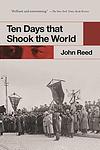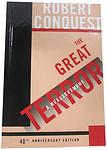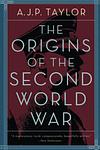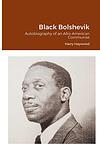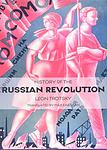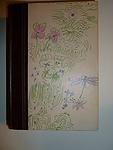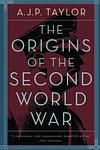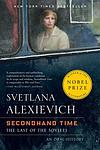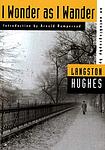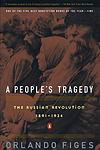The Greatest "Nonfiction, Soviet Union" Books of All Time
Click to learn how this list is calculated.
This list represents a comprehensive and trusted collection of the greatest books. Developed through a specialized algorithm, it brings together 300 'best of' book lists to form a definitive guide to the world's most acclaimed books. For those interested in how these books are chosen, additional details can be found on the rankings page.
Genres
The category of "Soviet Union" books encompasses literature that explores the history, politics, culture, and society of the former Soviet Union. These books may cover topics such as the rise and fall of communism, the Cold War, the Soviet economy, the lives of ordinary citizens, and the impact of Soviet policies on the world. They may also include memoirs, biographies, and fiction set in the Soviet Union or written by Soviet authors. Overall, the category of "Soviet Union" books provides a comprehensive look at one of the most significant and complex political systems of the 20th century.
Countries
Date Range
Reading Statistics
Click the button below to see how many of these books you've read!
Download
If you're interested in downloading this list as a CSV file for use in a spreadsheet application, you can easily do so by clicking the button below. Please note that to ensure a manageable file size and faster download, the CSV will include details for only the first 500 books.
Download-
1. The Gulag Archipelago by Aleksandr Solzhenitsyn
"The Gulag Archipelago" is a comprehensive and stark account of the Soviet Union's forced labor camp system. The narrative, based on the author's own experiences as a prisoner and on extensive research, documents the history, operation, and life inside the Gulag system. It also provides a critical examination of the regime's legal system, police operations, and political leadership. The book is an intense indictment of the Soviet Union's totalitarian regime, revealing its brutality, inhumanity, and vast scale of its prison camp network.
-
2. The Second World War by Winston Churchill
This book provides a comprehensive overview of the Second World War from the perspective of one of its most influential leaders. It covers the entire span of the war, from its origins in the political and economic turmoil of the 1930s, to the major battles and strategic decisions that shaped its course, to its aftermath and impact on the world. The author's unique perspective and firsthand experience, combined with his eloquent and insightful writing, make this a definitive account of one of the most important events in modern history.
-
3. Ten Days That Shook the World by John Reed
This book provides a firsthand account of the Russian Revolution in 1917, specifically focusing on the ten days during which the Bolsheviks seized power. The author, an American journalist, presents a detailed chronicle of the events, people, and emotions during this tumultuous period. His narrative is filled with vivid descriptions and passionate portrayals of the revolutionaries, offering an intimate look into this significant historical event.
-
4. The Great Terror by Robert Conquest
"The Great Terror" is a comprehensive analysis of Joseph Stalin's purges in the Soviet Union during the 1930s. The book delves into the brutal and systematic elimination of potential political rivals, intellectuals, and ordinary citizens, who were falsely accused of espionage, sabotage, or being counter-revolutionary. It provides a detailed account of the show trials, executions, and forced labor camps, shedding light on one of the darkest periods in Soviet history.
-
5. Lenin's Tomb: The Last Days of the Soviet Empire by David Remnick
This book provides an in-depth account of the final days of the Soviet Union, focusing on the period from 1989 to 1991. It explores the political, economic, and social factors that led to the collapse of the Soviet empire, including the role of key figures such as Mikhail Gorbachev, Boris Yeltsin, and others. The author, a journalist who lived in Moscow during this time, combines historical analysis with personal observations and interviews, offering a unique perspective on this significant period in world history.
-
6. Six Studies In Communism by Arthur Koestler, Richard Crossman
This book is a compilation of six essays that delve into the ideological and practical facets of communism. Each study examines different aspects of communist theory and practice, from its origins and evolution to its implementation in various countries. The authors critically analyze the successes and failures of communist systems, exploring the impact on societies that have adopted these principles. The essays also consider the psychological and sociological effects of living under communist regimes, providing a multifaceted perspective on one of the most influential political ideologies of the 20th century.
-
7. Journey Into The Whirlwind by Eugenia Ginzburg
"Journey Into The Whirlwind" is a harrowing autobiographical account of a woman's life during the Stalinist purges in the Soviet Union. The narrative follows her abrupt transition from a respected university professor to a political prisoner, as she is falsely accused of participating in a counter-revolutionary Trotskyist group. The book vividly details her arrest, interrogation, and the subsequent eighteen years spent in the Soviet prison system, including time in solitary confinement and the Gulag labor camps. Her story is one of survival and resilience, providing a deeply personal insight into the brutal realities of political oppression and the human capacity for endurance in the face of relentless adversity.
-
8. Second World War by John Keegan
"Second World War" is a comprehensive account of the global conflict that took place from 1939 to 1945. The book offers a detailed examination of the political, military, and social aspects of the war, from the rise of Hitler and the attack on Pearl Harbor, to the Holocaust and the dropping of the atomic bomb. The author provides an in-depth analysis of the strategies and tactics used by the major powers, and presents a vivid picture of the human cost of the war. The book also includes a variety of maps and photographs to help illustrate the events and locations discussed.
-
9. News from Tartary by Peter Fleming
"News from Tartary" is a riveting account of a seven-month journey across 3,500 miles of the desolate and remote areas of China, from Peking to Kashmir. The author and his companion, disguised as locals, face numerous challenges including harsh weather, dangerous landscapes, and political instability. The narrative provides a fascinating glimpse into the cultures, histories, and geopolitics of the regions they traverse, capturing the essence of an Asia that has since undergone significant transformation.
-
10. The Russian Revolution by Richard Pipes
"The Russian Revolution" offers a comprehensive and detailed account of the events leading up to, during, and following the Russian Revolution of 1917. The author presents a thorough exploration of the socio-political climate of the time, the key figures involved, and the profound impact the revolution had on Russia and the wider world. The book also delves into the ideologies that fueled the revolution, the subsequent rise of the Soviet Union, and the enduring influence of these events on global history.
-
11. My Life by Leon Trotsky
This autobiography provides a detailed account of the life of a prominent Russian revolutionary and Marxist theorist. The book traces his early life, education, and political development, his role in the Russian Revolution and Civil War, his leadership of the Red Army, and his expulsion from the Communist Party and subsequent exile. It offers a unique perspective on key events in 20th-century history and an insight into the author's complex personality and intellectual development.
-
12. The Unwomanly Face Of War by Svetlana Alexievich
"The Unwomanly Face Of War" is a powerful and poignant collection of interviews with Soviet women who fought in World War II. Through their testimonies, the author sheds light on the often overlooked and untold stories of these brave women who served as snipers, pilots, nurses, and soldiers on the front lines. The book explores their experiences, sacrifices, and the lasting impact of war on their lives, providing a unique and intimate perspective on the realities of war from a female point of view.
-
13. Black Bolshevik by Harry Haywood
This book is an autobiography that chronicles the life of an African American communist and his involvement in the Communist Party during the early to mid-20th century. It provides a detailed account of his experiences with racism within the United States, his participation in the Communist Party's efforts to combat racial injustice, and his work in the Soviet Union, where he sought to learn from and contribute to the international communist movement. The narrative offers a unique perspective on the intersections of race, class, and political ideology, highlighting the struggles and contributions of African Americans within the broader context of global communism and the fight against imperialism and racial oppression.
-
14. A World Apart by Gustaw Herling-Grudziński
"A World Apart" is a powerful memoir that recounts the author's experiences as a political prisoner in a Soviet labor camp during World War II. Through vivid and harrowing descriptions, the book exposes the brutality and inhumanity of the camp system, as well as the resilience and strength of the prisoners. It serves as a haunting reminder of the atrocities committed during this dark period of history and the enduring human spirit.
-
15. Grey Is The Colour Of Hope by Irina Ratushinskaya
This book is a powerful memoir of resilience and endurance, chronicling the author's experiences as a political prisoner in a Soviet labor camp during the 1980s. The narrative captures the harsh realities of life behind bars, from the brutality of the guards to the solidarity among the female prisoners. Despite the oppressive environment, the author finds strength in writing poetry, a testament to the human spirit's capacity for hope and creativity in the face of despair. Her lyrical prose weaves together personal reflections, vivid descriptions, and poignant insights, offering a moving account of her struggle for freedom and the triumph of the will over totalitarianism.
-
16. History Of The Russian Revolution by Leon Trotsky
The book provides a detailed analysis of the Russian Revolution of 1917, written by one of its key leaders. It explores the socio-political and economic conditions that led to the fall of the Russian Empire and the eventual rise of the Soviet Union. The narrative delves into the complex interplay of various classes and political factions, the role of leadership, and the strategies employed during the revolution. The author uses his firsthand experience to offer insights into the events and their significance, presenting a critical examination of the revolution's phases, from the initial uprisings to the consolidation of Bolshevik power.
-
17. Film Form by Sergei Eisenstein
"Film Form" is a seminal work in film theory and criticism that explores the complexities of film montage and its potential for creating meaning. The book compiles a series of essays that delve into the intricacies of film editing, arguing that the juxtaposition of images can produce ideas and emotional responses that are not inherent in the individual images themselves. The author, a pioneering filmmaker, uses examples from his own work and others' to illustrate how montage can manipulate time and space, evoke moods, and convey political messages, ultimately asserting that film is a powerful form of art capable of influencing thought and perception.
-
18. The Muses Are Heard by Truman Capote
In this non-fiction account, the narrative follows an eclectic American theater troupe as they embark on a groundbreaking tour to the Soviet Union during the Cold War. The book provides a candid and often humorous look at the cultural exchange, the behind-the-scenes drama, and the clash of ideologies that unfolds as the performers present an American musical to a Russian audience. The author's sharp observations and detailed reportage offer a unique glimpse into the challenges and triumphs of artistic collaboration across political divides, highlighting the universal power of performance to bridge cultural gaps.
-
19. The Origins of the Second World War by A. J. P. Taylor
This book delves into the causes and events leading to the Second World War, challenging traditional views and suggesting that it was not a premeditated act of aggression by Germany, but rather a series of miscalculations and blunders by various nations. It argues that the war was not inevitable, but was the result of flawed diplomacy and the failure of the League of Nations. The author presents a detailed analysis of the actions of major players, including Britain, France, and Russia, providing a fresh perspective on the political climate of the time.
-
20. The Silent Steppe: The Story Of A Kazakh Nomad Under Stalin by Mukhamet Shayakhmetov
"The Silent Steppe: The Story Of A Kazakh Nomad Under Stalin" is a gripping memoir that chronicles the life of a Kazakh nomad during the brutal reign of Stalin. The book offers a firsthand account of the hardships, persecution, and forced collectivization experienced by the Kazakh people under Soviet rule. Through the eyes of the author, readers gain insight into the resilience, traditions, and struggles of the Kazakh nomadic culture in the face of political oppression.
-
21. Secondhand Time: The Last of the Soviets by Svetlana Alexievich
"Secondhand Time: The Last of the Soviets" is a compilation of personal narratives from individuals who lived through the transformation of the Soviet Union to modern Russia. The book provides a vivid and emotional portrayal of the experiences of ordinary people during this period of significant societal and political change. The author uses these narratives to explore themes such as the impact of political ideology on individual lives, the nature of memory and history, and the enduring effects of trauma and loss.
-
22. I Wonder As I Wander by Langston Hughes
In this autobiographical work, the author takes readers on a journey through his varied experiences as a young African American man during the early 20th century. Spanning continents and cultures, he recounts his travels from the United States to the Soviet Union, Asia, and Europe, sharing his observations on race, politics, and the human condition. His narrative weaves together personal anecdotes with broader social commentary, offering insights into the life of a creative mind seeking understanding and connection in a complex world. Through his wanderings, the author explores not only the diverse landscapes and societies he encounters but also delves into the depths of his own identity and the universal quest for artistic expression and freedom.
-
23. Journey To The Land Of Flies And Other Travels by Aldo Buzzi
This book is a collection of travel essays that take readers on a whimsical and insightful journey through various parts of the world. The author, with a keen eye for detail and a taste for the eccentric, shares his experiences and observations from his travels, ranging from the titular land of flies to the bustling streets of New York and the serene landscapes of Europe. His writing is infused with a mix of humor, reflection, and a deep appreciation for the cultures and cuisines he encounters, making this work a delightful read for those who enjoy literary travelogues and the exploration of foreign places through the eyes of a perceptive and thoughtful wanderer.
-
24. Gulag: A History by Anne Applebaum
"Gulag: A History" provides an in-depth historical account of the Soviet Union's forced labor camp system, known as the Gulag. The book explores the inception of these camps during the reign of Vladimir Lenin, their expansion under Joseph Stalin, and their eventual decline and closure. It also delves into the daily lives of the prisoners, their hardships, and the brutal conditions they endured. The book is based on a wealth of archival material, personal interviews, and memoirs, offering a comprehensive understanding of one of the darkest periods in human history.
-
25. A People's Tragedy by Orlando Figes
"A People's Tragedy" is an in-depth exploration of the Russian Revolution from 1891 to 1924. The book offers a comprehensive study of the Revolution's roots, its progression, and its aftermath, from the famine that gripped Russia in the 1890s, through the abdication of Tsar Nicholas II, to the establishment of the Bolshevik regime and the death of Lenin. The author uses a broad range of sources, including personal letters, diaries, and government documents, to present a detailed, humanized view of the Revolution's impact on everyday individuals, bringing to life the experiences of peasants, workers, soldiers, and intellectuals.
Reading Statistics
Click the button below to see how many of these books you've read!
Download
If you're interested in downloading this list as a CSV file for use in a spreadsheet application, you can easily do so by clicking the button below. Please note that to ensure a manageable file size and faster download, the CSV will include details for only the first 500 books.
Download

